Hunger and Disgrace, Stories of Displacement
The stories of civilians displaced by Sudan’s most recent conflict echo with repeated themes; uncertainty, chaos, and sudden violence; followed by fear and desperation. Since April 15th, 2023 7.3 million people have been displaced inside Sudan.
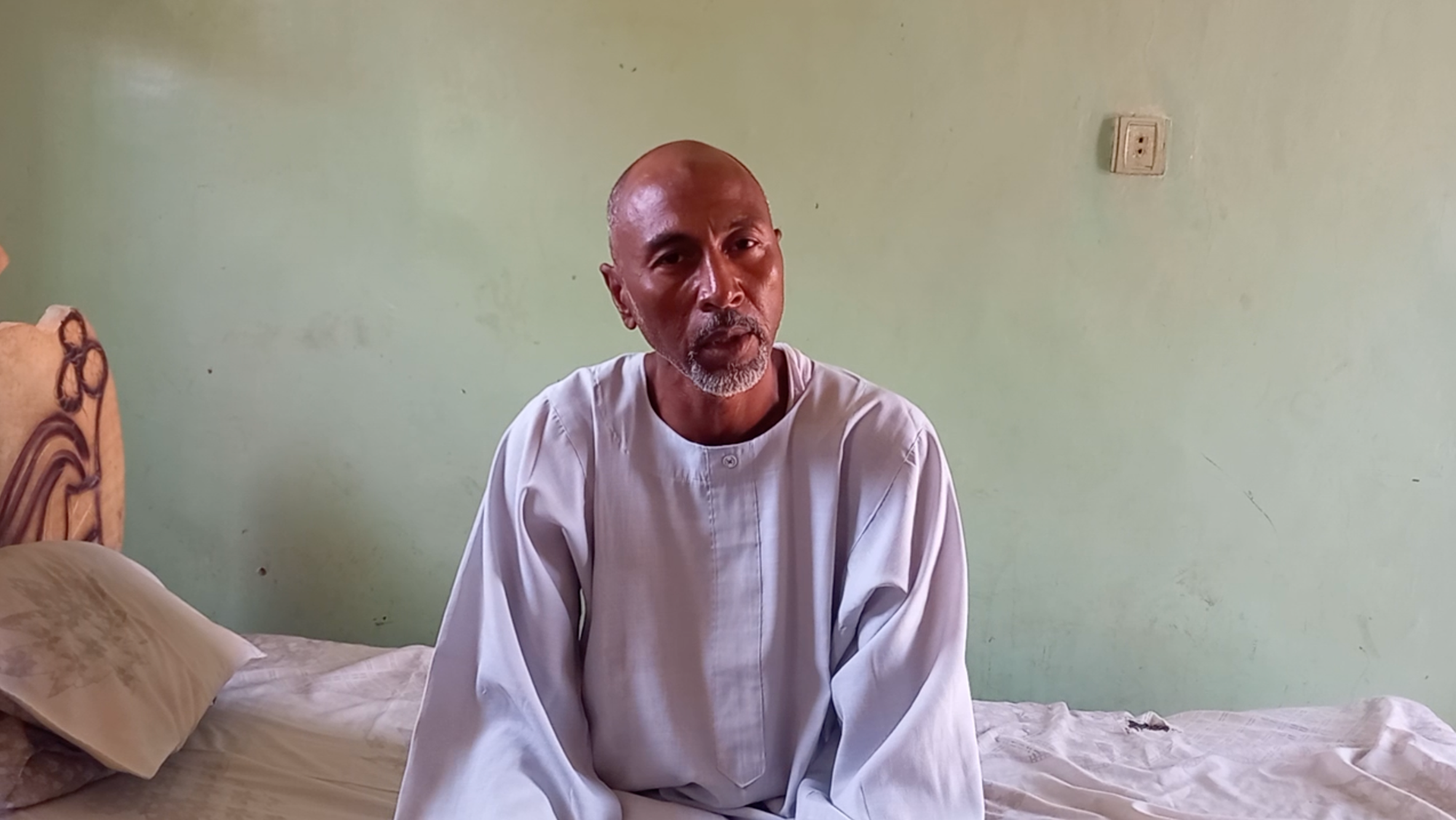
reporting by Nasreldin Abdelgadir, Mayada Abdalla, Amal Beito, and Maab Merghani
written by Brian Conley with support from the Alive-in/ Editorial Team
This story is part of a partnership between Alive-in/ and DT-Institute to support Sudanese journalists inside and outside Sudan. DT Institute is both a funder and an implementer of peace and development projects. More stories can be read in Arabic on the Alive-in/Sudan Facebook page.
Alive-in is a not-for-profit media agency that mentors journalists from underrepresented communities to increase local and national understanding.
If you are able to support our work financially, please click the button below.
VARIOUS PROVINCES, SUDAN–Combined with those internally displaced prior to the recent conflict, more than 11 million people, or nearly one quarter of the population, are now displaced inside the country. A number of factors contribute to the difficult question of whether to leave or stay.
While fleeing might seem like the obvious response to the level of violence Sudanese civilians are experiencing, for many it’s more complicated. Over the past year there have been repeated incidents of looting and destruction, mostly attributed to members of the RSF. These incidents both make civilians hesitant to leave their homes unprotected, and result in other challenges such as lack of food, electricity, and water, that make displacement almost inevitable for many.
Alive in Sudan’s team have been speaking to those affected by the war for the last six months, seeking stories from civilians across the country. Today AiS profiles some of the survivors, hearing about their first memories of the conflict and where they are today.
Speaking from a spartan bedroom in his mother’s family home in Sennar, Hafez, sixty years old and clad in a clean, off-white jalabiya, told Alive in Sudan, “The war broke out while we were in the historic Bayt al-Mal district of old Omdurman. The war brought us nothing but bombing, bullets, hunger, thirst, humiliation, and disgrace.”
Fatima Jasir, a journalist who was eventually forced to flee Sudan for Chad, told Alive in Sudan that she was at the General Command in Al-Fashir, attending a sit-in by employees of the Savings Bank from Al-Kuma who were killed while transporting salaries on April 15.
According to Fatima, “On that day, there was a meeting involving the North Darfur governor, the RSF commander, victims' families, and community leaders. I was waiting for a permit to attend the meeting with two colleagues when clashes began near the General Command. It was the first time I witnessed such fighting. We sought refuge in a nearby house and left for our homes when the fighting subsided around 5 PM.”
Ab Shara, originally from Nyala, was displaced in El-Daein when he spoke with Alive in Sudan. He was trapped with his family between the Rapid Support Forces and the army. As he described it, his house “was like a guesthouse for both sides. Sometimes I hosted Rapid Support Forces, and other times the army.” “The house was hit by shells and destroyed, so we had to leave. My house was hit by shells several times, causing significant damage. Neighbors were injured, and we were constantly in danger. Eventually, we had to leave because it became uninhabitable.”
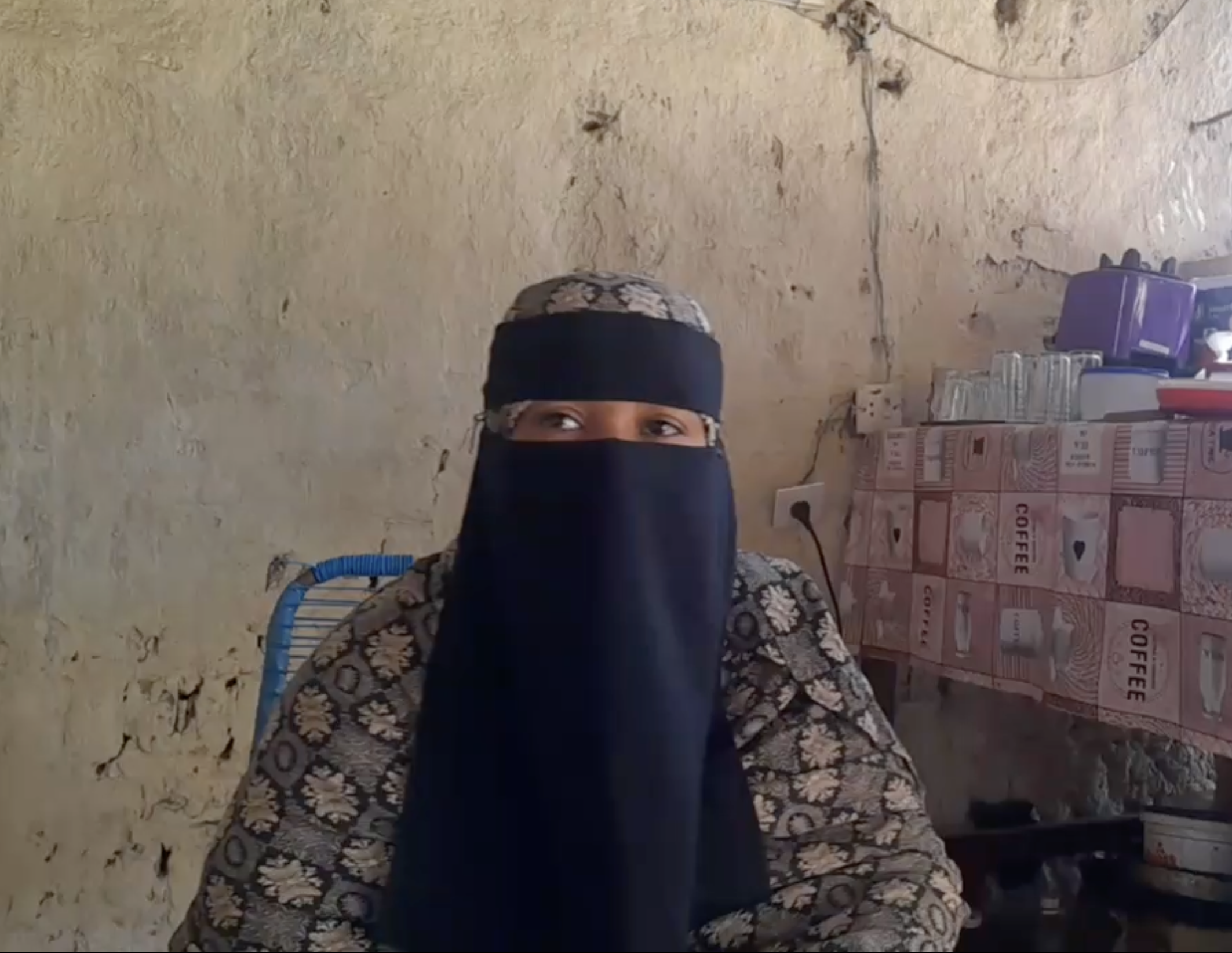
Civilians have also fled to Sudan’s north. Many have found themselves in Sudan’s Northern State, such as Amna, who fled Khartoum with her parents after Eid al-Adha in 2023. Prior to the conflict she worked as a computer engineer at a hospital in Khartoum. They left Khartoum early on in the war they lived near a military area where violent clashes occurred regularly between the two sides.
Amna said that they left in difficult circumstances, and were “relying on God and fearing that they would be hit by cannons and bullets as they left.”
Hala, now displaced and also living in Sudan’s Northern State, said this about the day the war started in Khartoum, “I remember the first day; I was at work. We returned home before the end of the day, thinking we would go back to work the next day as usual. But we didn't return, and life was calm because it was the end of Ramadan. Then there were sounds of gunfire, bullets, and cannons. They didn't scare us much because they were a bit far away.”
Although some fled immediately or in the days and weeks after the initial fighting broke out, many more waited much longer before deciding to leave or feeling forced by the circumstances.
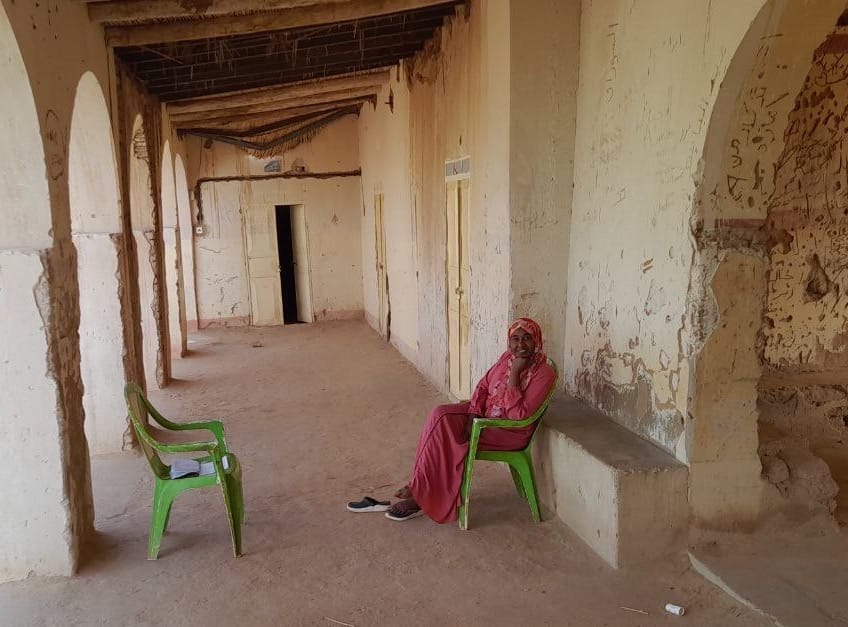
Hafez was one of those who did not leave immediately, “After a month and a half in Bayt al-Mal, we left our home for the Al-Gereif East area in Khartoum. There, we experienced a lack of water, electricity, bread, and flour. We sometimes spent the night at the bakery with uncertain hope of getting bread.”
The lack of resources was not the worst thing that Hafez and his family experienced, “In Al-Gereif East, the war and bombing intensified. I took my children to a safe place and then we fled due to the harsh living conditions in the conflict zones. My wife's parents were sick, so she couldn't leave them. She stayed with them and our children, while I fled to the villages of southern Al-Jazira. I haven’t seen them for five months."
Hafez told Alive in Sudan that eventually all the villages in southern Al-Jazira ran out of space for displaced people. "We moved to the city of Al-Managil in the southwest of Al-Jazira because we had sick women needing treatment and girls we feared for. We stayed in schools and religious places set up by benevolent people and young volunteers who didn't fail us. The Al-Jazira region wasn't suitable for living because the threats were ongoing and close by. We moved from Al-Managil to Sennar, but some people couldn't leave Al-Jazira, especially the elderly who found it hard to walk."
Hafez may soon have to leave again. Recent movements by the RSF have lead to Sennar being surrounded and largely cut off. Alive in Sudan reporter, Nasreldin is also in Sennar since being displaced from Khartoum in (MONTH) and his updates have becoming increasingly concerning and irregular.
Nasreldin recently reported, “The situation now is that there is no electricity, [my] phone is charged via solar energy, and the bakery’s power has weakened the phone’s battery. The conditions in the region in general are very bad, with the disappearance of many necessary goods due to the closure of roads.”
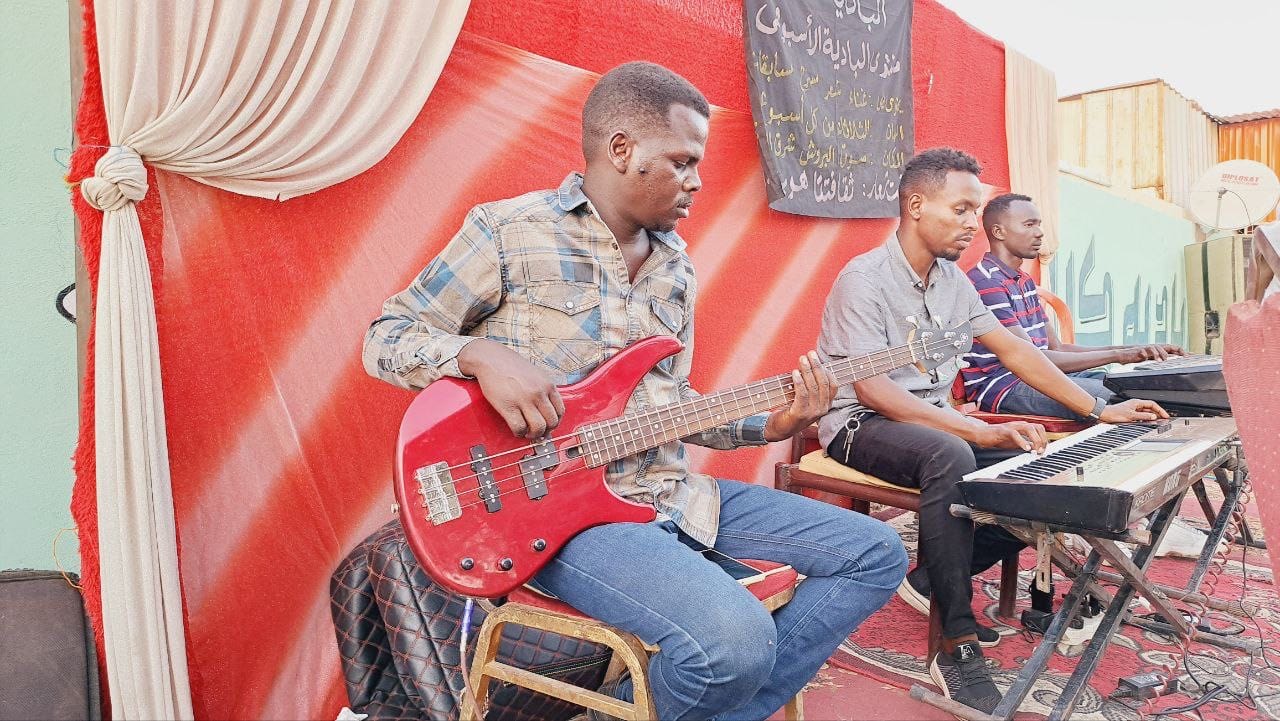
Ab Shara also faced loss of property and separation from his family due to the war. His hotel, The Moonlight Resort, was damaged by shelling and although the building was mostly intact, everything inside was looted. Even so, he did not leave by his own decision, “My wife was giving birth, and there was no option but to stay with her. After twelve days, friends insisted and helped me leave Nyala and brought me to El-Da'ein.”
Ab Shara’s wife was giving birth at the Military Hospital in Nyala. While he was there he was detained by the Sudanese Armed Forces, “There were accusations that I was involved with the Rapid Support Forces because my uncle was a commander. The army detained me for suspicion of collaborating with the enemy.”
Today Ab Shara is in El-Daein, while most of his family remains in Nyala, except for his wife and children who are staying with his mother-in-law in Buram, south of Nyala.
Fatima told Alive in Sudan that she was displaced several times, from North Al-Fashir to South Al-Fashir, moving between relatives and schools used as shelters. “I initially thought the conflict would end in a week or two. However, after six months I was caught between the army's artillery and the shells and drones of the Rapid Support Forces (RSF), I lived in Khorsial, an RSF stronghold surrounded by danger. In search of safety, I fled to Chad on October 25.”
Like many who eventually fled Sudan, Fatima still lives in exile as a refugee in Chad, uncertain when she might return home.
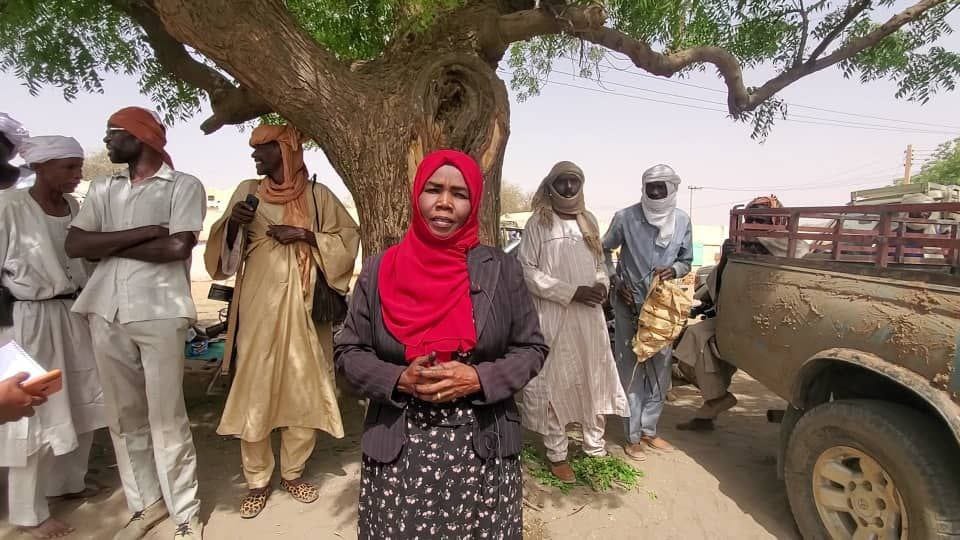
Some have fared slightly better, such as Amna, a former computer engineer from Khartoum, who now lives in Northern State with her parents. Before the war she lived by a comfortable routine, while now she passes her evenings selling falafel in an attempt to raise a little income to help with family expenses.“In the morning, I wake up, finish house chores, and start preparing for making falafel. I get the ingredients, soak and grind them, prepare the condiments like ketchup and chili sauce, and in the evening, I sell the falafel in front of the house.”
Amna came from the metropolitan atmosphere of Khartoum, and was not fully prepared for the more conservative attitude of people in Northern State.
“Initially, it was challenging to work as a street vendor because it was considered inappropriate for a girl to work on the street. At first, I took the falafel to a bakery to sell it, but one day they refused to sell it. I was upset and decided to sell it outside my house as a challenge. My parents supported me; my father stayed with me while I sold, and my mother helped prepare everything.”“I remember the first day; some neighborhood boys were sitting near the grocery store and weren't happy about it. But my father was with me, and I ignored them.”
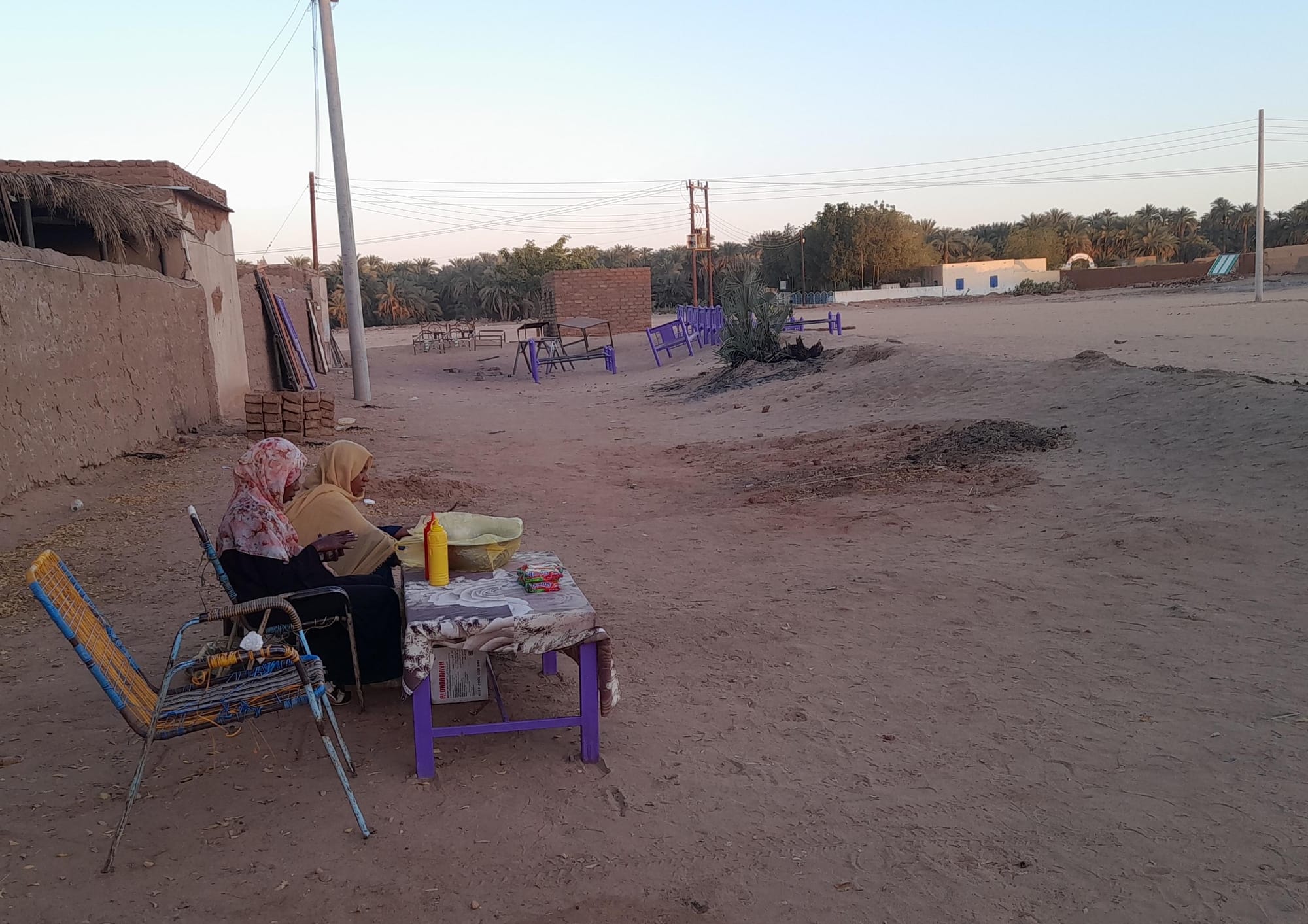
Today Amna remains in Northern State, and while her future is uncertain, she does her best to remain optimistic, telling Alive in Sudan, “Making falafel might be the beginning of something better. I encourage everyone with a project in mind to start and not be afraid. Beginnings are tough, but endings are beautiful, God willing.”
These stories reflect just a small part of the experience of the millions of Sudanese civilians impacted by the civil war over the past year. Alive in Sudan continues to document the stories of those living through the war, both in Sudan and abroad.
For more stories, follow the Alive-in/Sudan Facebook page.
